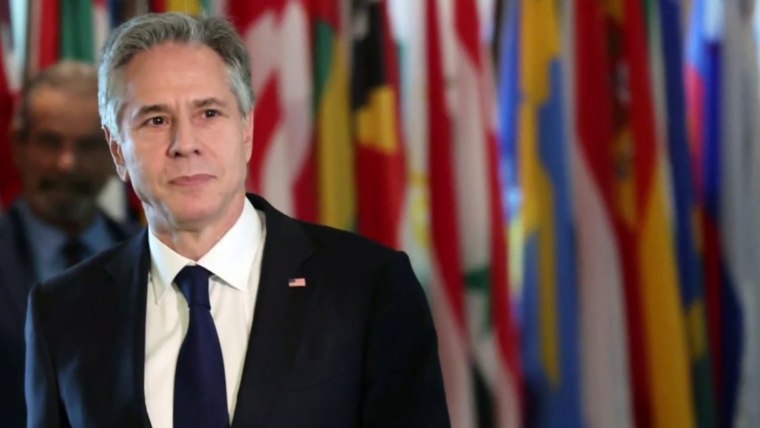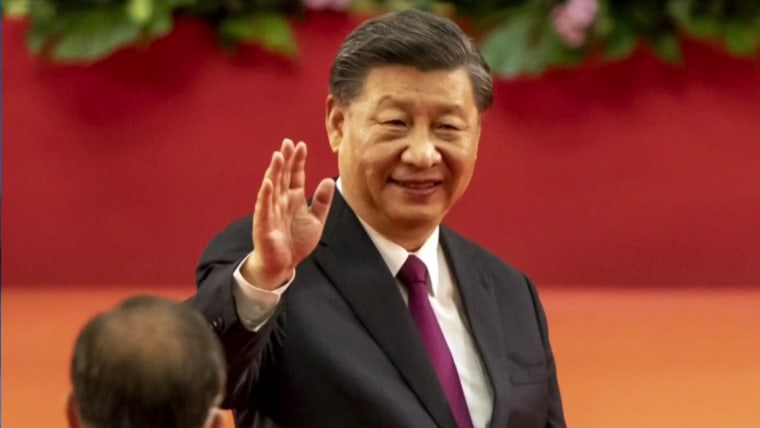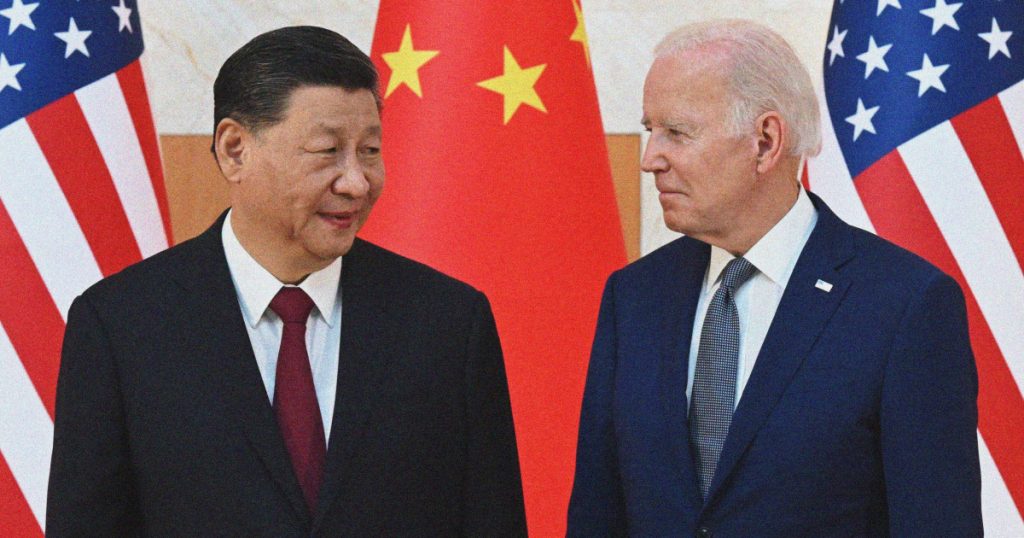
The Biden administration has delayed punitive economic measures against China and played down Beijing’s intensifying intelligence-gathering to avoid jeopardizing its efforts to revive diplomatic talks between the two governments, according to former U.S. officials, congressional aides, Western diplomats and regional experts.
From planned restrictions on investment in China to declassifying intelligence about the origins of the coronavirus, the administration has been “slow walking” certain decisions in recent months as officials have sought to mend relations with Beijing, the sources said. The extensive diplomatic effort culminates this weekend with Secretary of State Antony Blinken’s rescheduled visit to Beijing.
“They want to calm the waters with China,” said a former U.S. official with knowledge of the administration’s deliberations.
Since the U.S. shot down a Chinese balloon in February, the White House has prioritized ensuring that Blinken’s visit goes ahead, as well as other potential trips to Beijing by Cabinet members, including the commerce and treasury secretaries, former officials and congressional aides said.
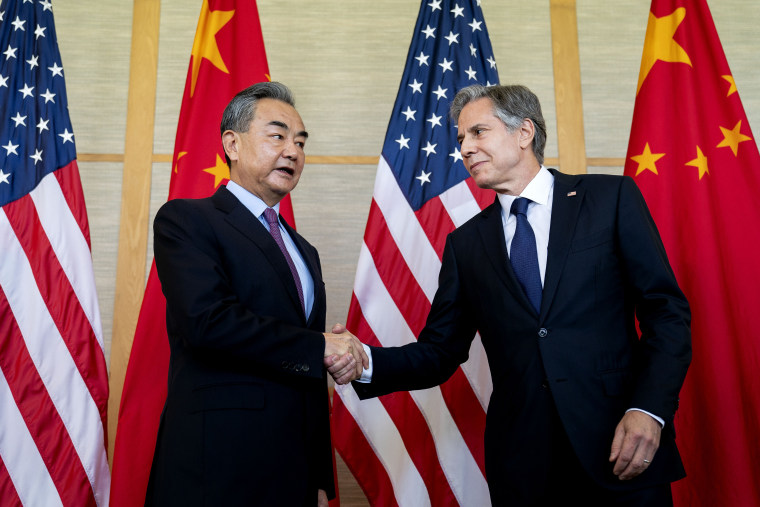
The administration has also appeared to sidestep questions about China’s surveillance efforts targeting the U.S. to keep the door open for high-level talks between Cabinet officials and their Chinese counterparts.
Biden administration officials denied delaying actions against China and that they have continued to impose sanctions on Chinese organizations in recent months as well as operate military aircraft and naval ships in the region.
“In just the last few months, we’ve taken actions against PRC (People’s Republic of China) entities involved in human rights abuses, forced labor, nonproliferation, and supporting Russia’s war in Ukraine,” said Adam Hodge, acting spokesperson for the White House National Security Council.
“We’ve continued to uphold freedom of navigation in the region by flying, sailing, and operating wherever international law allows. We’ll continue to take additional steps in the period ahead in economics, technology, security, and other arenas to advance our interests and values.”
But Administration officials have provided no public update since a Chinese surveillance balloon traversed the U.S. before being downed by an American fighter jet in February. The balloon’s flight prompted the administration to call off a planned trip by Blinken to China in February.
A recently completed investigation of the balloon’s debris found that Beijing’s capabilities are far more sophisticated than the U.S. had believed, said a current senior U.S. official and a former senior U.S. official briefed on the findings. “Their capabilities are significant,” one of the officials said, “better than we thought they were.”
The analysis, led by the FBI, entailed reconstructing the balloon, which Biden recently described as “carrying two freight cars’ worth of spying equipment” as it hovered over the U.S. for nearly a week before it was downed on Feb. 4. The administration has also not released additional details about previous Chinese balloon flights.
Asked why the administration has not released more information about the balloon, the administration official said: “I would not anticipate the release of sensitive information regarding the analysis of the balloon debris.”
On Thursday, 19 Republican senators wrote to Biden denouncing what they called the administration’s lack of transparency over the balloon episode.
“While four months have passed since a Chinese surveillance balloon was allowed to fly across the United States, your administration has yet to provide the American people a full accounting of how this spy platform was allowed to traverse across sovereign U.S. territory, what the balloon carried, and what it collected during its mission,” said the senators, who included Roger Wicker, R-Miss., the ranking member on the House Armed Services Committee, and Marco Rubio, R-Fla., the vice chairman of the Senate Intelligence Committee.
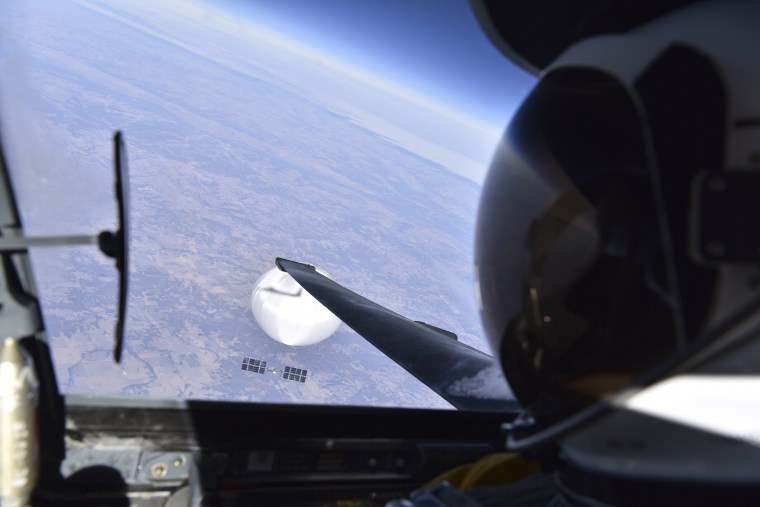
China has said the airship was a civilian balloon used for meteorological research.
The White House last week initially portrayed a Wall Street Journal report about a Chinese electronic surveillance post in Cuba as “inaccurate,” but a few days later it said that Beijing has had an eavesdropping facility in Cuba since 2019 and that China was seeking to expand its intelligence-collection efforts in the region. The administration has declined to elaborate further on China’s surveillance activities in Cuba.
The administration is also poised to miss a congressional deadline that expires Sunday to declassify documents related to the origins of Covid-19. Republican lawmakers have accused the White House of dragging its feet on the issue.
They say that the administration’s approach is misguided and that China is not holding back on retaliatory measures against the U.S., including imposing sanctions on the U.S. tech firm Micron Technology.
“The United States can no longer afford to keep chasing Chinese leaders for meetings and should not delay competitive actions in order to do so,” said Sen. James Risch of Idaho, the ranking Republican on the Foreign Relations Committee. For their part, the Chinese are not “pausing” any tough measures directed at the U.S., he said.
Blinken is due to arrive in Beijing on Sunday, when the deadline to declassify the COVID-19 documents expires. China’s response to the outbreak of the virus is a topic both governments would prefer to avoid at public events during Blinken’s visit.
U.S. intelligence agencies are divided over whether the coronavirus emerged due to natural causes or from an accidental leak from a lab in Wuhan.
An administration official said the Office of the Director of National Intelligence is currently carrying out a “careful declassification process” and that “getting to the bottom of the origins of Covid-19 remains a priority for the President and the United States.” They did not say when the administration will declassify the documents.
When Biden met Chinese President Xi Jinping in Bali in November, his first meeting with Xi since he was elected president, the two agreed that Blinken would pay a visit to China this year. But the Chinese balloon flight upended those plans, with Blinken canceling just days before his scheduled departure. Since then, the White House has been working to get the relationship back on track.
Before Biden met Xi, his administration rattled Beijing in October when it imposed unprecedented export controls designed to block China’s access to sophisticated chipmaking tools that Washington said could be used by the Chinese military. Japan and the Netherlands say they are adopting similar restrictions.
The administration was expected to follow up with more restrictions on U.S.-made semiconductor technology, as well as a new executive order on any American investment linked to China’s defense industry. But it has yet to move ahead.
“We’ve been expecting outbound investment regulations for over a year now and a number of other measures as it relates to technology or export controls, and we haven’t seen them yet,” said David Sacks, a research fellow at the Council on Foreign Relations think tank. “So the question is why?”
The administration official said, “This is not a diplomatic decision, as it stands there are policy components yet to be worked through on both these actions. “
Sacks said the administration appears to be putting off some measures and toning down its rhetoric to keep the door open to diplomacy, but it may be sending the wrong signal to China. Chinese officials may see the prospect of dialogue as a tool to extract concessions, making meetings contingent on Washington not angering Beijing, he said.
“If China assesses that the Biden administration is willing to entertain tradeoffs here, that basically it will pursue dialogue and put these on the shelf while dialogue is ongoing, then it’s happy to manipulate that in its favor and keep stringing the United States along and make dialogue conditional,” Sacks said.
Emily Benson, a senior fellow at the Center for Strategic and International Studies think tank, said that the initial export restrictions last year caused some consternation in private industry. Plans to expand those restrictions have been the subject of internal debate in the administration and protracted discussions with allied governments. The administration also is mindful of Blinken’s coming visit, she said.
“Announcing new restrictive measures in the lead-up to a meeting could derail the meeting completely,” Benson said.
She said the administration, as a result, has faced “a complicated mix of domestic political pressures and foreign diplomatic considerations” as it tries to find the ideal time to unveil the new measures, she said.
The administration is clearly delaying the release of the executive order on investment restrictions to avoid friction with China before Blinken arrives, as well as a likely trip by Treasury Secretary Janet Yellen, possibly over the summer, according to a person briefed regularly by the administration and a former official.
Supporters of the administration argue that delaying some actions is a useful tactic to achieve a more important objective — lowering the temperature between two superpowers to avert a potential conflict.
“The U.S. really wants to restart the dialogue and not let things slide any further,” a former congressional official said.
The measures the White House has postponed do not represent major concessions, the former congressional official said, and the overall U.S. policy to China has not changed, including viewing Beijing as a competitor that must be countered and deterred.
It is not realistic to fight over every disagreement, this person added. “When every issue is a problem, you have to pick and choose.”

 Latest Breaking News Online News Portal
Latest Breaking News Online News Portal

